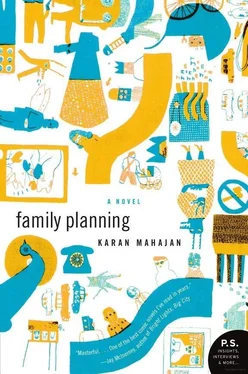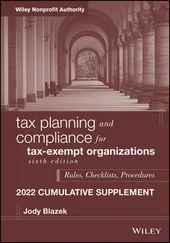Mr. Ahuja opened his eyes; they were bloodshot in a regal, Mughal way.
“What is all this, Papa?” Arjun said.
Even as he asked, he thought: a concert. He is making up for yesterday by organizing a concert.
Mr. Ahuja said, “Beta, I understand this is very sudden. But we are going to have to move in one month’s time from this house. So I wanted to have a party at the earliest. Tomorrow night.”
“We’re going to move? What do you mean?”
Mr. Ahuja sat upright. “Look. As you know, I have resigned—”
“But, Papa—”
“And not only have I resigned. But, for once, my resignation has been accepted!” Mr. Ahuja chuckled unconvincingly. “And thus we will move.”
They were living in a government-sanctioned home, a VIP accommodation.
“But, Papa, I thought you said the government will also fall. If the government falls, then can’t you keep the house till the next election?”
“Come again?”
“I THOUGHT YOU SAID THE GOVERNMENT WILL ALSO FALL.”
“Who says the government is falling? There is a Sixth Front being formed between Rupa Bhalla and the CPI. I thought Yograj was also going to withdraw and so the government would collapse. But this is not happening. And I have decided to stand by my decision. Sometimes one must do the thing that is morally right.”
“You’ll still be a Member of Parliament I thought. Even if you are not in the government you’re an MP, right? As an MP you can keep the house.”
Mr. Ahuja was impressed by his son’s interrogation. He said so. “Very sharp you’ve become, eh? Look, the situation is this. I will be frank. This house we are living in is bigger and better, more spacious than the house of any other MP. Do you know why? Because we are staying in the house that was allotted for Rupa Auntie. I am only leasing the house from her. So now that she and I are no longer on talking terms, she will cancel the lease. I know her too well. We will have to move. We have no choice.”
Arjun dug his hands into his pockets. How to explain to Papa that Rupa Auntie could have taken away the house (the sacred birth place of nearly half his siblings), the garden (the burial ground of soiled diapers), and the guards, and it would all have been fine, if only there was a way to preserve the bus route that came bowtied to this prime location? He’d have to change buses if he changed neighborhoods, and then there’d be no Aarti to unwrap every morning or to festoon with offerings of wit. To think he’d only been moody with her today because he knew he could remedy it tomorrow with sniveling kindness and a Bryan Adams reference. What if there was no tomorrow. What if this was the end. Hello, Good-bye. His massive, smooth forehead contorted with suppressed speech; Mr. Ahuja could sense it.
“Look, beta,” he continued, “I know this is very difficult to swallow. It is very difficult for me also. Put yourself in my shoes. But we will get over this. In fact, you must play an active role at this party tomorrow. I will introduce you around. And you can even perform with your band if you like. We can turn the party into a concert.”
“No. We’re not good. The band’s not good.”
“Of course you are.”
“You don’t know what good music is.”
“That is not your concern,” said Mr. Ahuja. He brushed off a few darts of hair that were poking out of his shoulder. “I will arrange that.”
“How is it not my concern if I am playing?”
“Arjun, please. Why would you pay? You asked me if I had provided food and booze, and I said yes.”
“Ah, Papa! I said, You have no idea WHAT GOOD MUSIC IS.”
Mr. Ahuja laughed at himself. “Yes, you’re right. I’m sorry.”
“I’m sorry too.”
Arjun looked away from his father and scratched his cheek. He was surprised by his stubble and scratched some more.
Mr. Ahuja persisted. “Arjun, have the concert. You can even invite the girl you like. The one who goes on your bus?”
Arjun wanted to hand it to the man — he had a marvelous sense of timing and an unlimited number of informants, how could he possibly know about an insignificant bus romance? — but then the source of the information came to him in a thunderclap of consciousness: his siblings. They’d betrayed him, the bastards. They’d pay for this.
“There are many girls who go on the bus, Papa,” he said. “They are all my girlfriends. When the right time is there, I will invite all of them. You can help me choose even.”
“But your brothers and sisters told me—”
“Forgot what they say, Papa. They’re all liars. They have nothing better to do but tell lies about me. They’re stepbrothers and stepsisters, and they want to have a stepsister-in-law. This is the sort of thing I have to deal with all the time. Maybe I should also resign. Will you accept my resignation? I resign.”
Arjun had intended to sound joke-y, but the last two lines were spat out; his tongue hissed and flickered between his teeth.
Mr. Ahuja said, “Very funny, let me consider it,” and tittered uneasily. He was not a man much given to tittering.
After Arjun stomped his way back to the house, Mr. Ahuja sat in the chair under the tent and massaged his head. He beckoned the barber over and had him point a giant industrial fan at his face. The brutal surge of wind was suffocating, but the trick was done: the shorn hair was sucked off his face and shoulders and nose and into a minor jetstream that plummeted and scattered into the camouflaging greenery of the garden. Still he prickled from his recent snipping; he had sensitive skin; he felt the full weight of Arjun’s immaturity. It appeared to Mr. Ahuja that Arjun was setting himself dangerously against the family. Already he considered them step-relations. He wasn’t doing well at school or at home or with his band. He needed to be distracted away from this zoo, or more trouble was in store. There was only one place for him, Mr. Ahuja decided with a sigh, there was no point denying it, and so when he entered the house, he took Arjun aside from the dining table where he sat peering dumbly into a notebook — a rare scene of homework-in-progress — and said, “I have thought about your proposition.”
“I’m sorry, Papa” said Arjun. “I was only joking.”
“No, no, it’s okay. You will not resign or any such thing, but you have to help me with the next campaign. What do you say? You will be one of my political advisers. Tonight you’ll come with me to a function. You’ll be my right-hand man. What do you say?”
Looks of pure thrill are rare: Arjun’s face became a singularity, a thing invented solely to fulfill the promise of the moment, all of the self and its self-consciousness and history obliterated by the delicate dance of muscles that signify wonder. He forgot all about helping Mama as he’d planned; he forgot even, for a moment, about Aarti and his siblings and his homework. He looked like a baby, he was a baby. He’s not cynical, he’ll have to be taught everything from scratch , thought Mr. Ahuja, and even though he knew he was inviting disaster — even though he knew that the two of them could never get along — he felt glad. He’d done the right thing.
“Are you serious, Papa?”
“What do you say?”
“Yes, Papa,” gasped Arjun. “Of course, yes, Papa.”
Then the disasters began.
THE DISASTERS IN THE YEARS THAT FOLLOWED were too numerous to mention; like the sputterings of a dying engine or the jarring contractions of pregnancy, they varied in duration and heat and oomph and involved fistfights, property deals, disownings, rekindlings, namecallings, many many babies, and the occasional furious riot; and they continued till the very day Mr. Ahuja retired twenty years later from the Congress (I) Party (to which he had uneasily defected), willing his constituency and collected clout to Arjun.
Читать дальше












